Have you ever wondered if your Danville property is truly performing at its best? Maybe you’re concerned about rising costs, unclear rental returns, or want to avoid hidden surprises down the road. You’re not alone. As someone who’s worked with countless landlords and investors in the East Bay, I understand how property performance can keep you up at night, or help you sleep soundly.
Property audits aren’t just for owners with large portfolios: they’re invaluable for anyone who wants confidence in their investment. In this guide, I’ll break down what goes into a property performance audit, why it matters specifically for Danville, and how you can use insights from an audit to make smarter, more profitable decisions. Ready to discover where your property stands? Let’s begin.
Key Takeaways
- A Danville property performance audit thoroughly assesses your property’s financial, physical, and operational health to identify strengths and weaknesses.
- Regular property performance audits help Danville owners catch deferred maintenance, compliance issues, and market rent gaps before they become costly.
- Financial analysis, physical inspections, lease compliance checks, and tenant feedback are core components of an effective audit.
- Conducting annual property performance audits supports proactive management and maximizes long-term investment returns in Danville.
- Using audit findings to create action plans—tackling urgent repairs, adjusting rents, or improving vendor management—can substantially boost property value and income.
Understanding Property Performance Audits
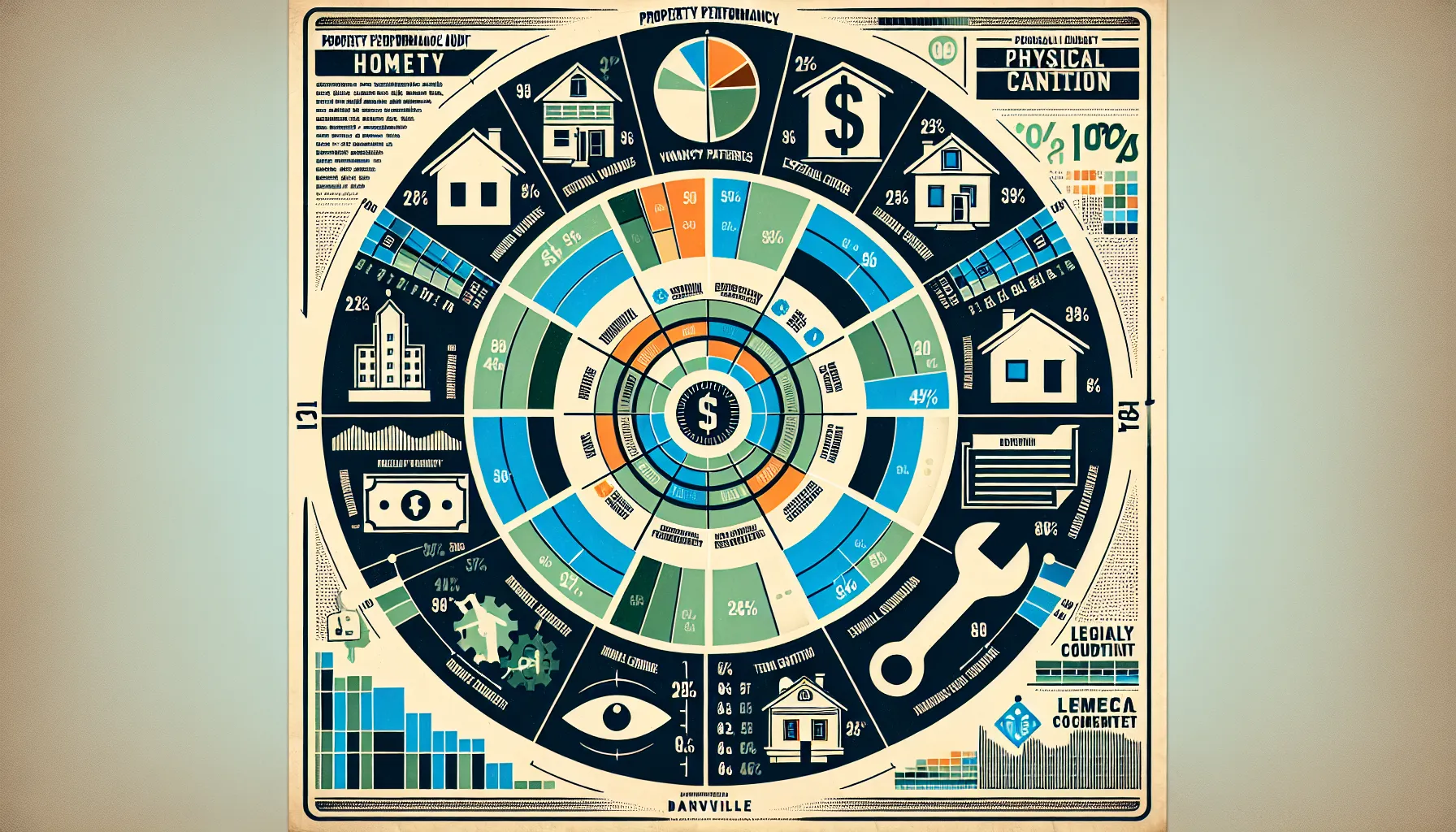
A property performance audit is a thorough review of how well your rental or investment property is operating. But what does that actually mean? Simply put, it’s a detailed analysis of how your asset is functioning across financial, physical, and operational dimensions.
This isn’t just about looking at rent rolls or glancing at maintenance invoices. Instead, I look at every facet: rental income, vacancy rates, expense patterns, physical condition, tenant satisfaction, and compliance with local regulations. The goal? To spotlight areas of strength and highlight places that could cost you money, now or in the future.
For most owners, that means taking a deep jump into areas that are easy to overlook. Are your maintenance practices keeping the property in great shape? Are your lease agreements up-to-date? Is your rent in line with the market, or are you leaving money on the table? Each part of the audit connects back to your bottom line and peace of mind.
Why Conduct a Property Performance Audit in Danville?
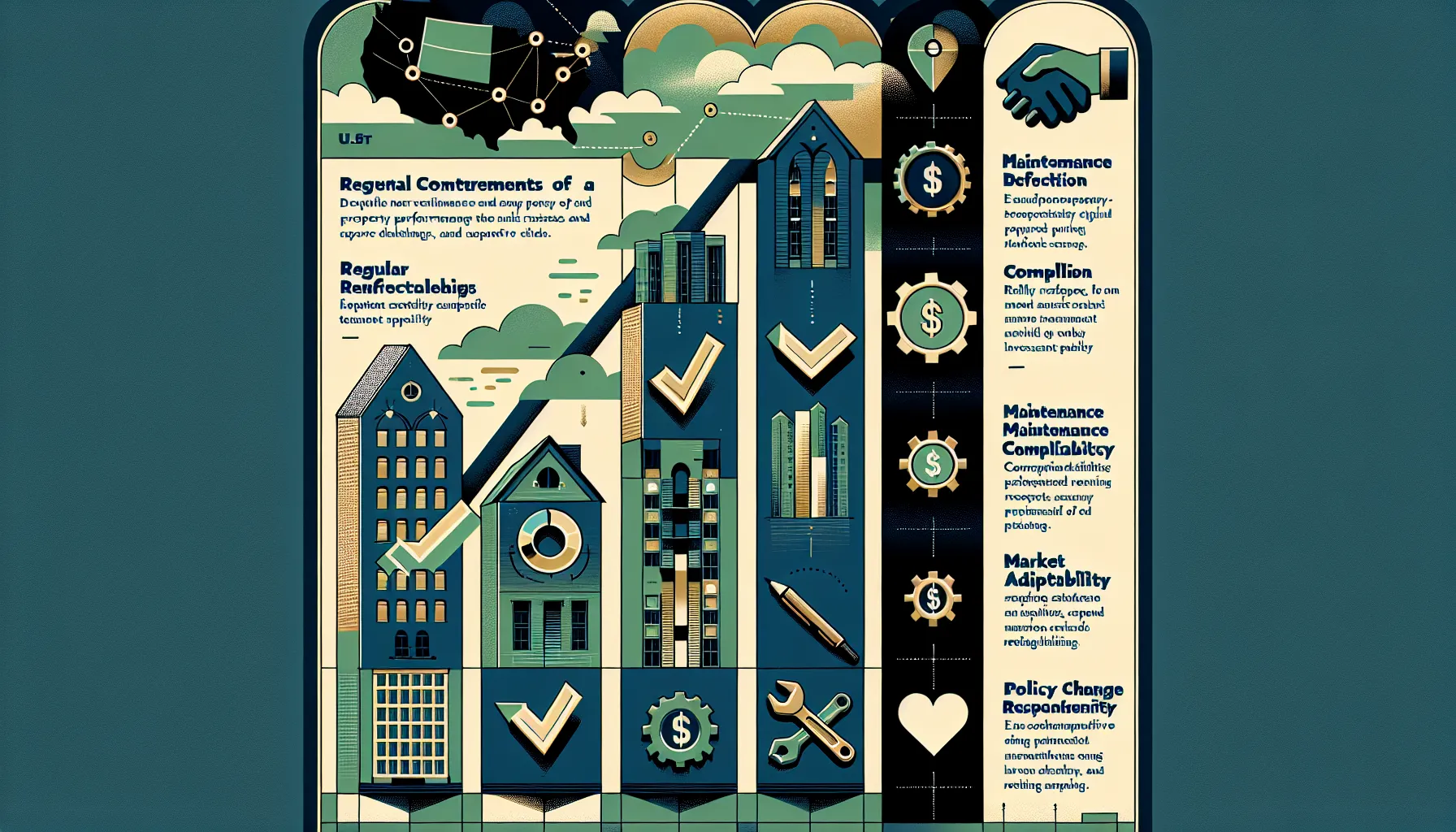
Danville’s property market is dynamic and packed with opportunity, but also challenges. Local regulations shift and tenant expectations grow. If you’re like many local property owners, you might be juggling other commitments while wanting to protect your investment in this sought-after community.
Why perform an audit here? For one, Danville properties often command premium rents. That makes it even more critical that properties are managed proactively and maintained to high standards. Skipping regular reviews might mean missed rental increases, preventable repair issues, or compliance slip-ups.
I’ve seen firsthand how periodic performance audits in Danville can mean the difference between a property that maintains value and one that quietly deteriorates. Owners who audit regularly tend to spot early signs of deferred maintenance, adjust to market shifts faster, and respond better to changes in local policies. Plus, audits show tenants you’re serious about providing a well-managed home, often resulting in longer tenancies and fewer headaches.
Are you making the most of your Danville investment? An audit provides clear answers and a roadmap for improvement.
Key Components of a Property Performance Audit
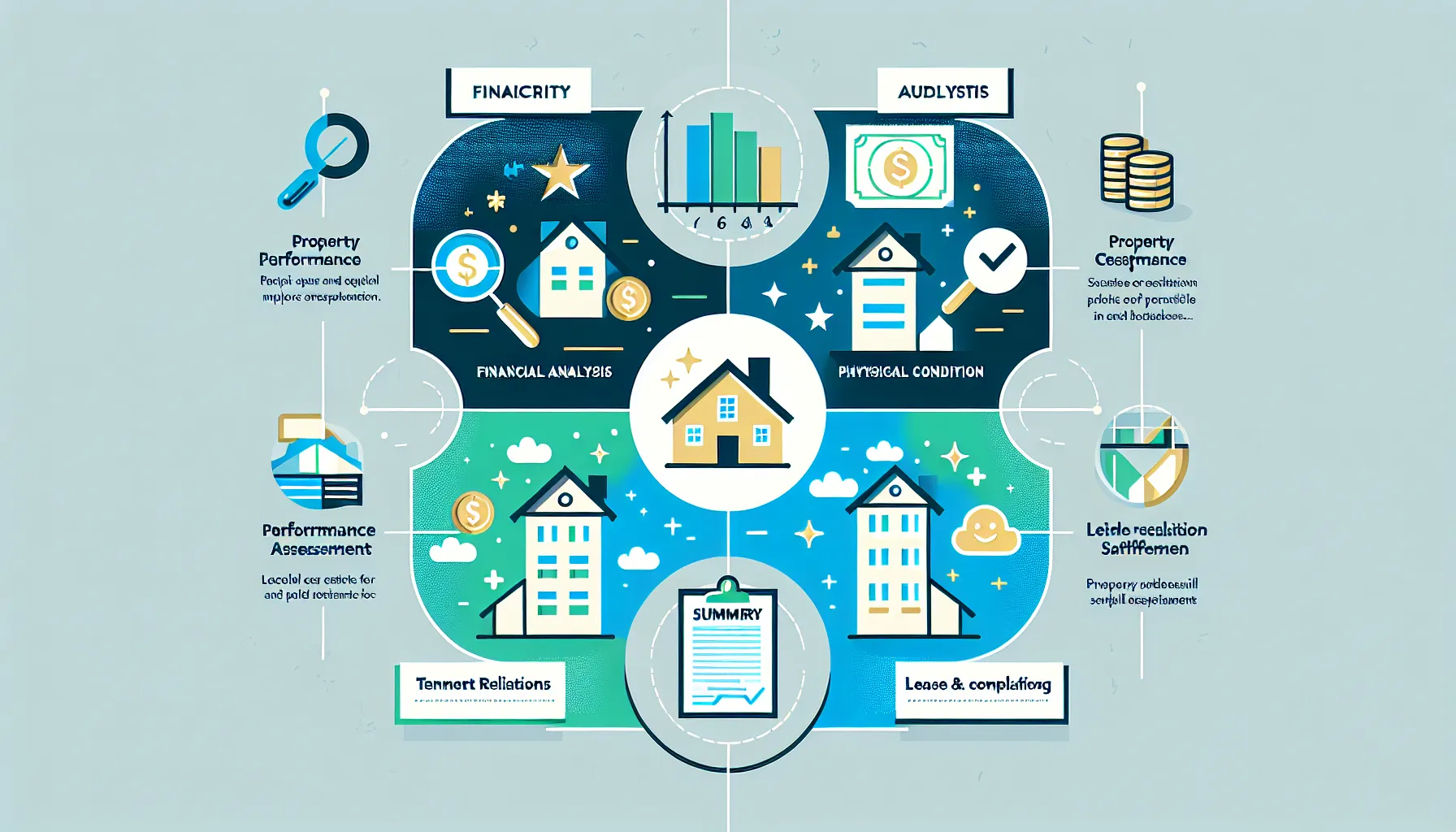
What do I actually look for during a Danville property performance audit? These are the main components I always cover:
1. Financial Analysis
I start by examining how much income the property generates, rents, additional fees, and any other revenue streams. Then I scrutinize expenses: utilities, insurance, maintenance, professional services, and more. Are expenses creeping up? Are rents keeping pace with the local market?
2. Physical Condition Assessment
A walk-through and visual inspection reveal the property’s actual state. I check for any signs of deferred repairs or potential safety concerns. Are HVAC units efficient? Is landscaping maintained? Even small issues can balloon if left unattended.
3. Lease & Compliance Review
Lease agreements need to reflect current laws and best practices. I review documents for clarity and compliance. Has the property passed required inspections? Are smoke alarms up-to-date? Staying current avoids costly fines and friction with tenants.
4. Tenant Relations and Satisfaction
Happy tenants mean stable income. I check on how quickly tenant concerns are addressed and review feedback to see if adjustments are needed. This area is often overlooked but directly affects turnover rates.
Combining these elements creates a comprehensive picture, one that reveals both risks and opportunities you might not see day-to-day.
Steps to Conducting an Effective Audit
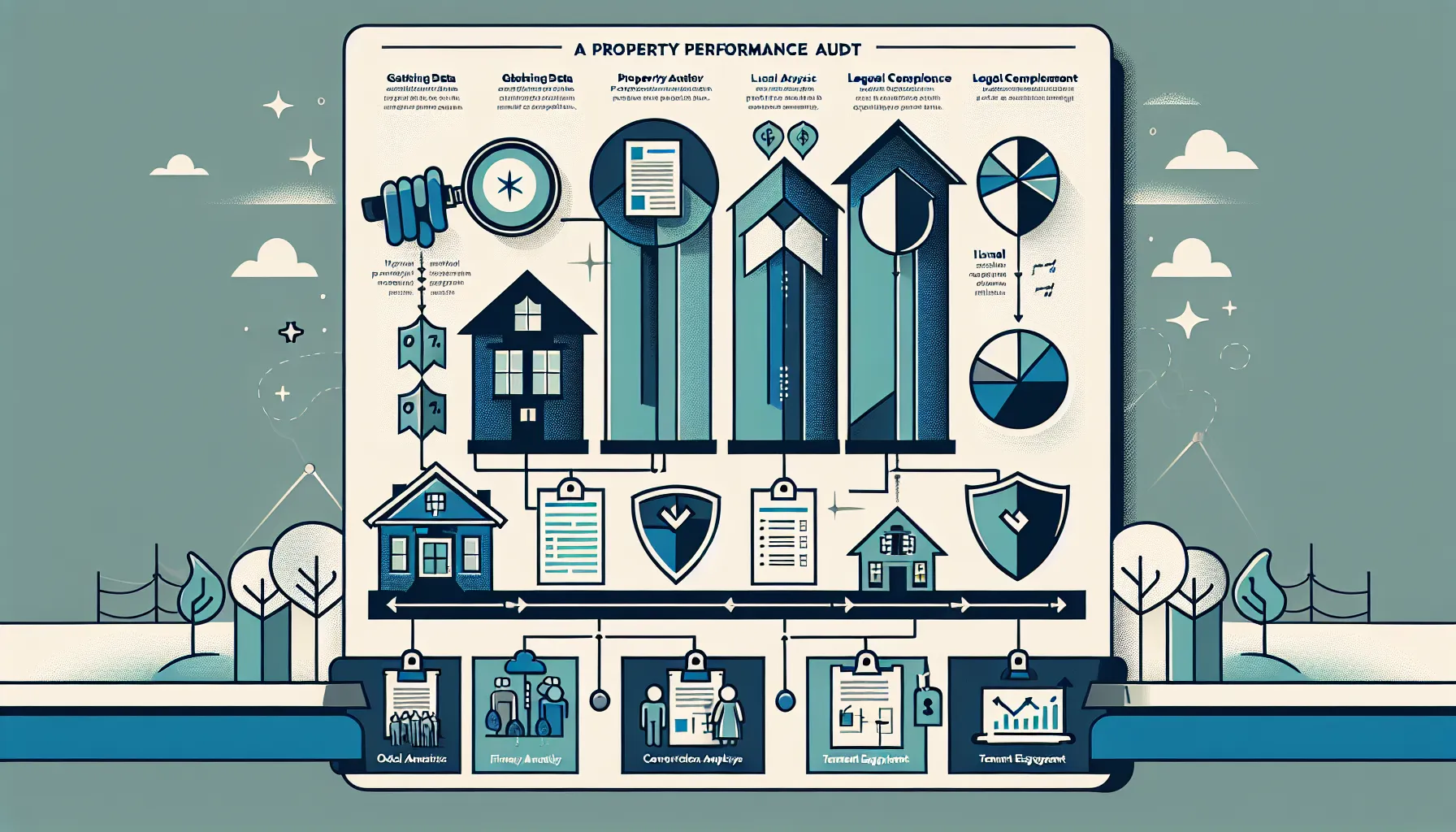
Wondering how to actually move through a property performance audit in Danville? Here’s the process I recommend, whether you manage things yourself or work with a property management company.
- Gather Data: Start with the basics. Pull together your financial statements, maintenance records, lease agreements, and service contracts. This paperwork forms the backbone of your review.
- Inspect the Property: Schedule and walk the property yourself or have a trusted professional do a detailed visual inspection. Take notes on repairs, upgrades, or areas of concern.
- Analyze Financials: Compare income and expenses over time. Are there spikes in utilities? Do repairs frequently target the same issue? Patterns often reveal where you can save money or improve performance.
- Review Legal and Compliance Documents: Make sure everything is current. Is your insurance up-to-date? Are local permits valid? Check lease agreements for accuracy and legal compliance.
- Engage Tenants: If possible, request feedback from your residents. Their input often reveals issues that aren’t visible from accounting statements or brief inspections.
- Compile Your Findings: Organize everything into a clear report. This should highlight strengths, weaknesses, and actionable recommendations for next steps.
Performing these steps at least annually helps you stay ahead of issues and supports ongoing profitability.
Common Issues Identified in Danville Properties
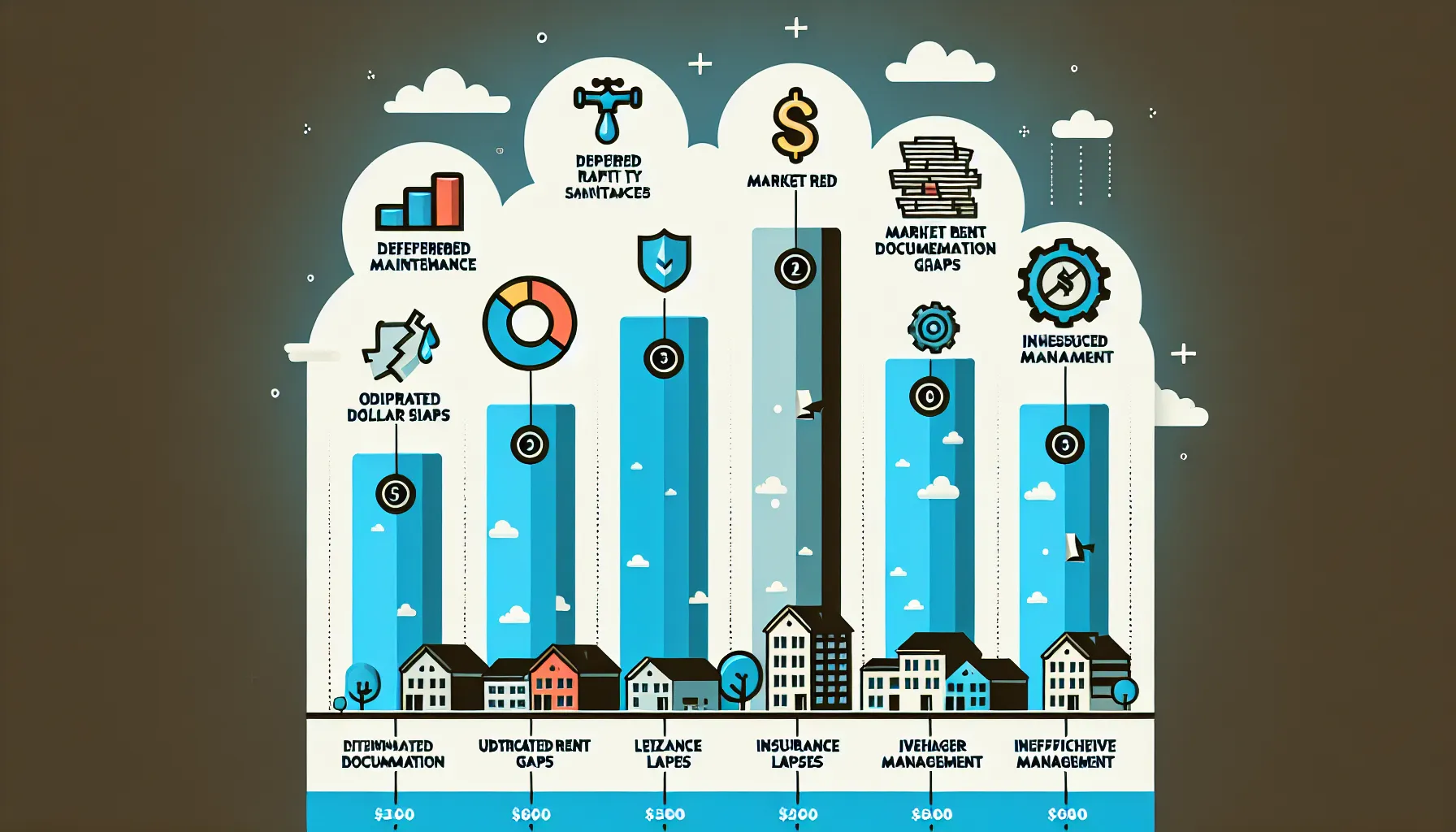
So what problems crop up most often during Danville property audits? I’ve noticed a few patterns:
- Deferred Maintenance: Small leaks, worn carpets, or faulty appliances that go unaddressed can multiply costs over time.
- Market Rent Gaps: Sometimes owners stick with the same rent for years only to discover they’re below market. This can mean thousands in lost revenue annually.
- Outdated Lease Documentation: As laws change, leases can become incomplete or noncompliant. I often see missing addenda or clauses, especially about local ordinances.
- Insurance Gaps: Sometimes policies haven’t been updated or are missing coverage for potential risks. That can be risky, especially in areas with more severe weather or increased tenant claims.
- Inefficient Vendor Management: Paying too much for contracted services or not reviewing service providers periodically can eat into profits quietly.
These issues aren’t unique to Danville, but with its active real estate market, even one overlooked area can have a bigger impact on property value and income.
Maximizing Results: Post-Audit Action Plans
Completing a property performance audit is just the starting point. What really matters is how you put your findings to work.
I always recommend creating a prioritized action plan. Tackle anything urgent, like immediate repairs or compliance issues, first. Next, look at improvements that can boost revenue or reduce expenses: rental rate adjustments, upgrading energy systems, or changing vendors.
Don’t underestimate the value of clear communication. Keep tenants in the loop about improvements or upcoming changes. That builds trust and reduces turnover.
Finally, schedule your next audit, this is an ongoing process. Whether you own one single-family home or a multi-property portfolio, a scheduled review keeps your investment on track. I’ve found that those who follow through not only safeguard property value but often see stronger returns over time.
Conclusion
A Danville property performance audit gives more than just peace of mind, it arms you with real information to make your property investment work harder. Whether you manage your home yourself or hire a professional, regular audits can reveal savings, guide improvements, and help you stay ahead in a competitive market.
Ready to see your property through new eyes? Consider scheduling your audit this year, you might be surprised by what you uncover and how much you can gain.
Frequently Asked Questions about Danville Property Performance Audits
What is a Danville property performance audit?
A Danville property performance audit is a comprehensive review of your investment property’s financial, physical, and operational status to identify strengths and areas for improvement. It can uncover missed revenue opportunities, deferred maintenance, and compliance issues unique to the Danville market.
How often should I conduct a property performance audit in Danville?
It’s recommended to conduct a property performance audit at least once a year. Regular audits help you stay ahead of potential problems, adapt to market changes, and ensure ongoing profitability for your Danville property investment.
What key issues are commonly found during a Danville property performance audit?
Common issues include deferred maintenance, rents that are below-market, outdated lease documentation, insurance gaps, and inefficient vendor management. Addressing these problems can lead to better property value and higher income in Danville’s dynamic market.
How does a property performance audit benefit Danville landlords?
A property performance audit helps Danville landlords spot opportunities to maximize rental returns, improve tenant satisfaction, and maintain compliance with local regulations. It also reduces the risk of costly repairs and tenant turnover by proactively identifying issues.
Can a property audit help me increase my Danville property’s rental income?
Yes, a property performance audit can reveal if your rental rates are below market value or if operational improvements can justify an increase. This ensures you’re not missing out on potential revenue in Danville’s competitive rental market.
Do I need a professional to perform a Danville property performance audit, or can I do it myself?
While experienced owners can conduct basic audits, hiring a professional provides expert insights, a more thorough review, and familiarity with Danville-specific regulations. This can help you uncover issues and opportunities you might otherwise miss.
